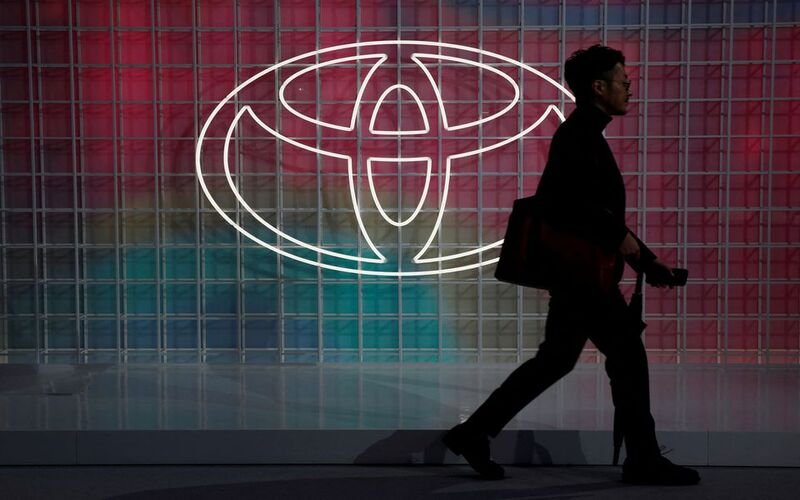On Wednesday, Toyota Motor’s (7203.T) Daihatsu division, the largest carmaker in Japan, announced that it would stop shipping any of its cars. This is because a probe into a safety scandal has uncovered problems with 64 models, almost two dozen of which are marketed under the Toyota brand.
Daihatsu has been the subject of an independent panel’s investigation since it was revealed in April that it had manipulated side-impact safety tests for 88,000 small vehicles, most of which were marketed as Toyotas.
However, the most recent information indicates that the scandal’s reach is significantly broader and deeper than previously believed, which might damage the manufacturers’ image of dependability and quality.
Toyota’s small-car division, Daihatsu, manufactures many of Japan’s well-liked “kei” tiny cars and trucks. The panel found that the most recent issues also affected some domestically marketed Mazda (7261.T) and Subaru (7270.T) vehicles and Toyota and Daihatsu models sold abroad.
Toyota stated that “fundamental reform” and examining certification procedures were required to revitalize Daihatsu. Toyota stated, “This will be an extremely significant task that cannot be accomplished overnight.” “It will require a review of management and business operations and the organization and structure.”
According to Toyota, the matter’s financial impact could not yet be ascertained. On Wednesday, its shares ended unchanged, trailing the market’s 1.4% increase.
According to the study, Daihatsu employed different airbag control units for airbag testing for some models used in automobiles marketed to the general public, such as the Mazda Bongo, the Town Ace, and Pixis Joy models made by Toyota.
According to Toyota, no incidents have been connected to the problem. Even though verifications showed that the airbag complied with passenger safety regulations, it said that side-collision testing of two models might not be legally compliant.
The transport ministry of Japan said that on Thursday, an on-site examination will be conducted at Daihatsu’s Osaka headquarters.
At a press conference, Daihatsu officials said that international shipments will be halted until authorities give the go-ahead for the vehicles to be sold again.
President of Daihatsu, Soichiro Okudaira, declared, “The situation is dire,” adding that any regulatory certifications the company obtained by dishonest means may be canceled by law.
False reports on headrest impact testing and test speeds for specific models were also part of the misbehavior. The inquiry discovered that instances of misbehavior were more common after 2014, in the case of one Daihatsu vehicle that had already been discontinued as far back as 1989.
The chair of the third-party investigative committee, Makoto Kaiami, stated that Daihatsu was attempting to live up to the standards it had set for itself rather than the panel holding Toyota accountable for the misbehavior.
The problem surfaced when Daihatsu said in April that it had found the tests had been improperly carried out following a disclosure from a whistleblower. It had stopped shipping the impacted models and notified the relevant authorities of the problem.
The following month, it announced that it had halted sales of its own Rocky model and the Toyota Raize hybrid electric car due to issues with testing for both models.
Previous Toyota Safety Incidents
According to Toyota data, Daihatsu manufactured 1.1 million cars in the first ten months of this year, with over 40% being built in foreign locations. It sold about 660,000 cars globally, or 7% of Toyota’s total sales during that time.
Toyota announced on Wednesday that the impacted models were those for the nations of Mexico, Ecuador, Peru, Chile, Bolivia, and Uruguay in Central and South America, as well as the Southeast Asian markets of Thailand, Indonesia, Malaysia, Cambodia, and Vietnam.
Daihatsu is the most recent safety concern affecting the Toyota group throughout the years.
At Toyota’s truck and bus manufacturing subsidiary, Hino Motors (7205.T), an engine data controversy in 2022 resulted in manager resignations and temporary salary reductions for a few of them.
In another instance, Hino acknowledged that it had fabricated data on a few engines going back to 2003, or at least ten years earlier than it had previously claimed.
Toyota CEO and chairman Akio Toyoda was compelled to go before Congress in 2010 for a safety issue concerning malfunctioning accelerators.










































Comment Template